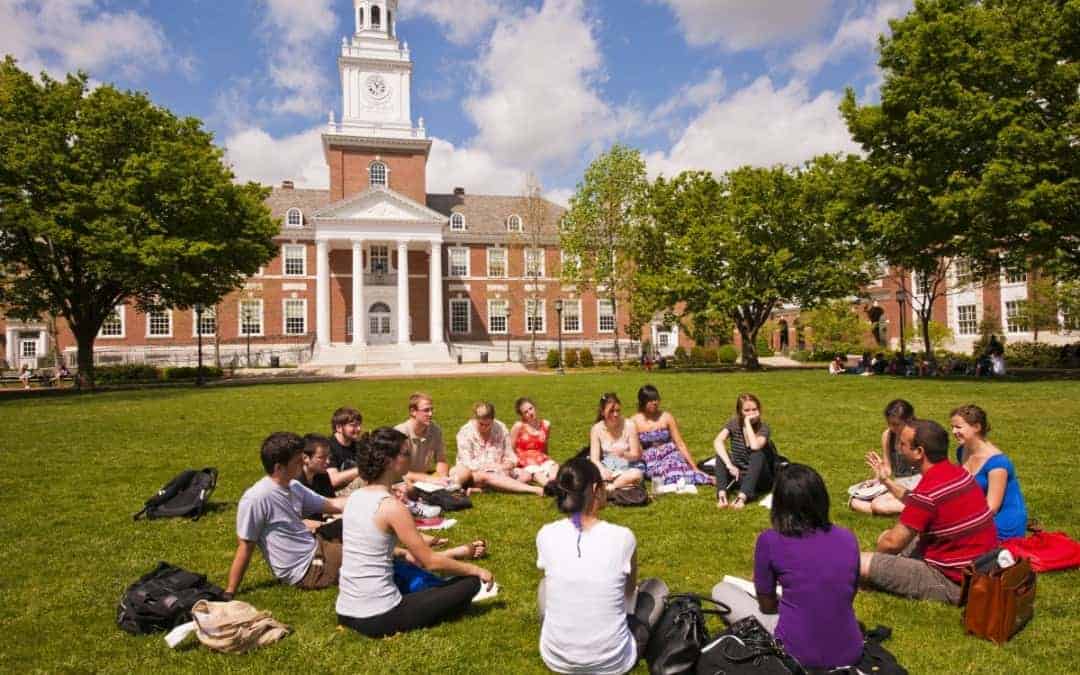How to Find the Right Reach School
When applying to colleges, it’s wise to choose a series of schools with a broad range of selectivity.
(The need for a detailed list of schools BEFORE applications begin is one reason it’s so important to budget your time in high school effectively - you’ll have to do all this WHILE other assignments and activities are still going on!)
I like to refer to schools in tiers, with the first tier being safe or probable schools (such as community colleges or state schools), the second tier being possible schools (slightly more selective public and private universities), and the third tier being reach schools–schools like Harvard or Princeton, where even kids with perfect grades and test scores may be routinely rejected. It’s easy to find probable and possible colleges, but selecting the right reach schools shouldn’t be as simple as applying to a bevy of Ivies. Here, I’ll offer some tips on how to find the right reach school.
Assess Your Grades and Test Scores
While it’s important to have grades and SAT or ACT scores that fall within a college’s range of admission, high school grades and standardized test scores most certainly aren’t everything. In fact, many of the most selective colleges and universities may place extra emphasis on your personal characteristics and background, facets you can touch on and reveal in your college application essay. Be realistic, however, with where you stand statistically. To find the right reach school, you want to be sure you fall within their range of admission–or, if you happen to have outstanding personal characteristics and extracurricular achievements, just outside of their range of admission.
The Right Reach School May Lie Beyond the Ivy League
This paragraph isn’t a plug for Loren Pope’s classic college guidebook Looking Beyond the Ivy League, but Pope is absolutely on to something. There are many schools as selective and prestigious as the Ivies which are, in fact, not Ivies. Stanford, Juilliard, MIT, the US Naval Academy, Cal Tech, Duke University, Northwestern University, Pitzer College, Pomona College, Vanderbilt University, Amherst College–all of these schools have fairly low acceptance rates and are highly regarded in academic and professional circles. Check out this list from US News of the Top 100 Colleges with Lowest Acceptance Rates to check out some more of your options!
Furthermore, if you have an idea of what you plan to study in college, it’s wise to find out which colleges and universities have prestigious departments and faculty in your field of choice. The colleges with the best engineering programs, for example, according to US News rankings, aren’t Harvard, Princeton, or Brown. Rather, they’re MIT, Stanford, and UC Berkeley.
Particularly if you know what you’d like to study, do your research! It may just lead you beyond the Ivy League.
Extracurricular Achievements Can Guide You and Help You Get Into the Right Reach School
If you’re particularly proud of your extracurricular success and plan to continue pursuing your passions (something we highly recommend as a cornerstone of our Ultimate Time Management for Teens course), look to those extracurricular activities to help you find the right reach school–and get in.
If you plan to study music, for example, it may behoove you more to apply to Berklee, the New England Conservatory, or Oberlin than it would to apply to Harvard. Perhaps you’re an accomplished dancer–why not Juilliard? Again, do your research: the colleges with the strongest arts and writing programs may not be the Ivies!
Even without significant academic achievements, you stand a good chance of getting into a reach school if you’ve demonstrated talent in and engagement with an extracurricular arena.
* * *
That’s it! Good luck on your quest to find the right reach school. For more college admission tips, as well as SAT and ACT prep tips, read the rest of our blog. Looking for 1-on-1 college counseling or SAT or ACT group classes or tutoring? Contact us today!
Additional Resources:
Ultimate Time Management for Teens and Students
Winning College Scholarships for High Schoolers
